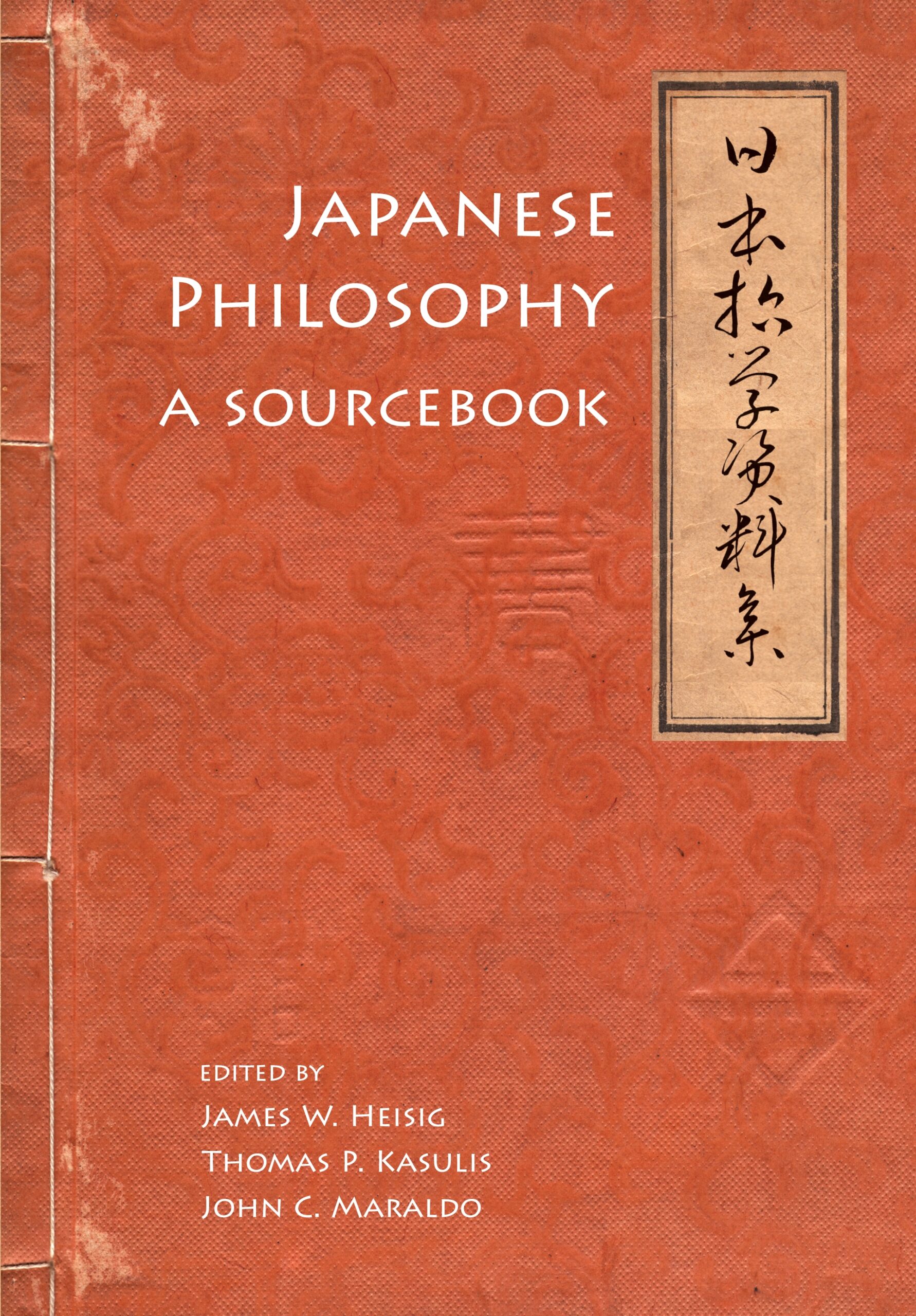Japanese Philosophy: A Sourcebook
- About the Book
-
With Japanese Philosophy: A Sourcebook, readers of English can now access in a single volume the richness and diversity of Japanese philosophy as it has developed throughout history. Leading scholars in the field have translated selections from the writings of more than a hundred philosophical thinkers from all eras and schools of thought, many of them available in English for the first time.
The Sourcebook editors have set out to represent the entire Japanese philosophical tradition—not only the broad spectrum of academic philosophy dating from the introduction of Western philosophy in the latter part of the nineteenth century, but also the philosophical ideas of major Japanese traditions of Buddhism, Confucianism, and Shinto. The philosophical significance of each tradition is laid out in an extensive overview, and each selection is accompanied by a brief biographical sketch of its author and helpful information on placing the work in its proper context. The bulk of the supporting material, which comprises nearly a quarter of the volume, is given to original interpretive essays on topics not explicitly covered in other chapters: cultural identity, samurai thought, women philosophers, aesthetics, bioethics.
An introductory chapter provides a historical overview of Japanese philosophy and a discussion of the Japanese debate over defining the idea of philosophy, both of which help explain the rationale behind the design of the Sourcebook. An exhaustive glossary of technical terminology, a chronology of authors, and a thematic index are appended. Specialists will find information related to original sources and sinographs for Japanese names and terms in a comprehensive bibliography and general index.
Handsomely presented and clearly organized for ease of use, Japanese Philosophy: A Sourcebook will be a cornerstone in Japanese studies for decades to come. It will be an essential reference for anyone interested in traditional or contemporary Japanese culture and the way it has shaped and been shaped by its great thinkers over the centuries.
- About the Author(s)
-
James W. Heisig, Editor
James W. Heisig is a permanent research fellow at the Nanzan Institute for Religion and Culture in Nagoya, Japan.Thomas P. Kasulis, Editor
Thomas P. Kasulis is University Distinguished Scholar and Professor Emeritus in Comparative Studies at the Ohio State University, where he has taught in the departments of comparative studies, philosophy, and East Asian studies.John C. Maraldo, Editor
John C. Maraldo is distinguished professor of philosophy emeritus at the University of North Florida.
- Reviews and Endorsements
-
- An outstanding sourcebook for all those interested in Japanese philosophy, as well as religious thought, social ideology, and artistic expressions stemming from the classical (Heian) and medieval ( Kamakura) through the early modern (Tokugawa) and modern (Meiji and post-Meiji) periods. . . . All readers of Japanese Philosophy will greatly benefit from and be gratified in finding authoritative versions of philosophical materials, offered in a creative, cross-thematic and historically based fashion. The reader may already be familiar with some of these resources, but may wish to reference or cite them anew, while other sections will provide original translations of philosophers with whom many readers may not yet be familiar or have not previously had an opportunity to reflect upon in depth or view in historical perspective. The Thematic Index is one of the excellent tools that will enable the reader to navigate a path through over twelve hundred years of philosophical writing in Japan.
—Philosophy East & West - This massive tome will stand for the forseeable future as the gold standard for comprehensive treatment of all matters of Japanese philosophy. The three editors, all significant names within this small but growing subfield, have assembled an impressive group of established and up-and-coming scholars to translate and provide introductions to each entry, resulting in a readable sourcebook remarkable in both scope and acuity of analysis. . . . Essential.
—Choice
- An outstanding sourcebook for all those interested in Japanese philosophy, as well as religious thought, social ideology, and artistic expressions stemming from the classical (Heian) and medieval ( Kamakura) through the early modern (Tokugawa) and modern (Meiji and post-Meiji) periods. . . . All readers of Japanese Philosophy will greatly benefit from and be gratified in finding authoritative versions of philosophical materials, offered in a creative, cross-thematic and historically based fashion. The reader may already be familiar with some of these resources, but may wish to reference or cite them anew, while other sections will provide original translations of philosophers with whom many readers may not yet be familiar or have not previously had an opportunity to reflect upon in depth or view in historical perspective. The Thematic Index is one of the excellent tools that will enable the reader to navigate a path through over twelve hundred years of philosophical writing in Japan.
- Supporting Resources
-





